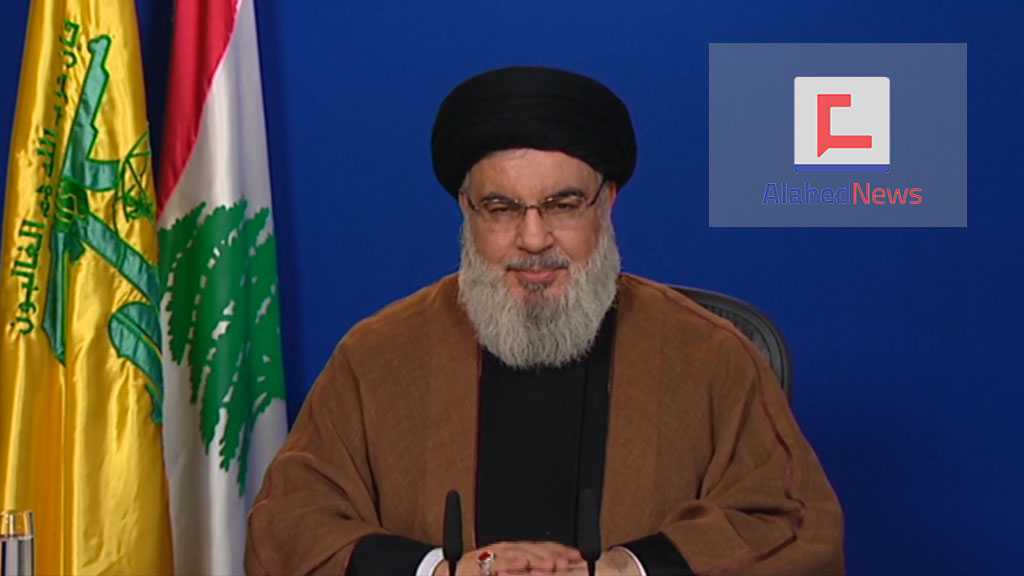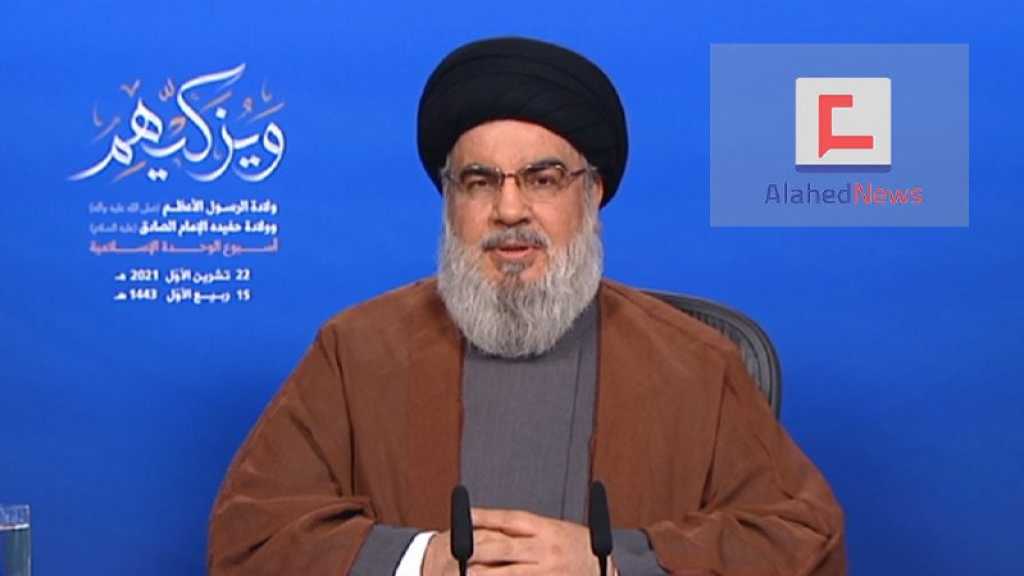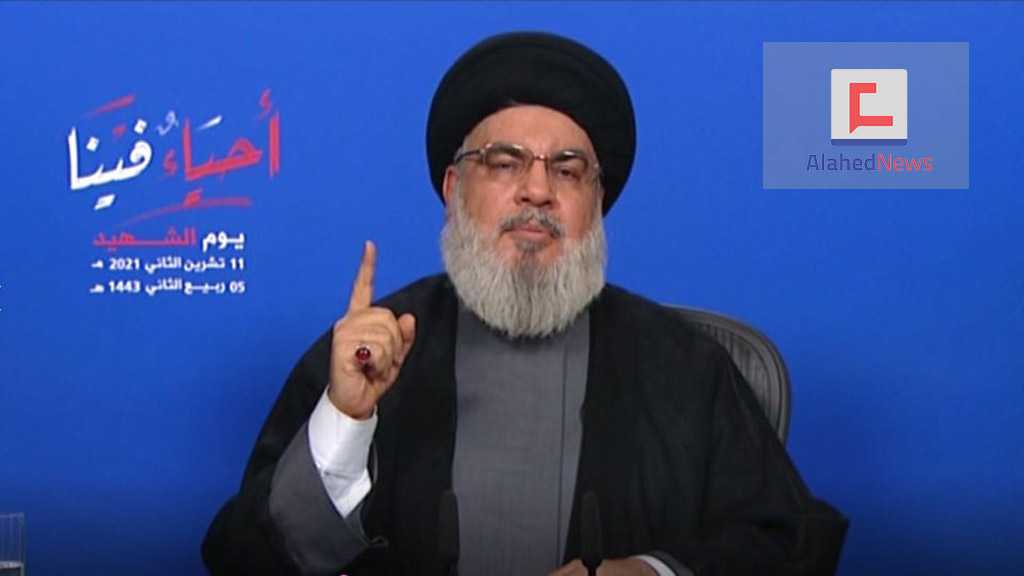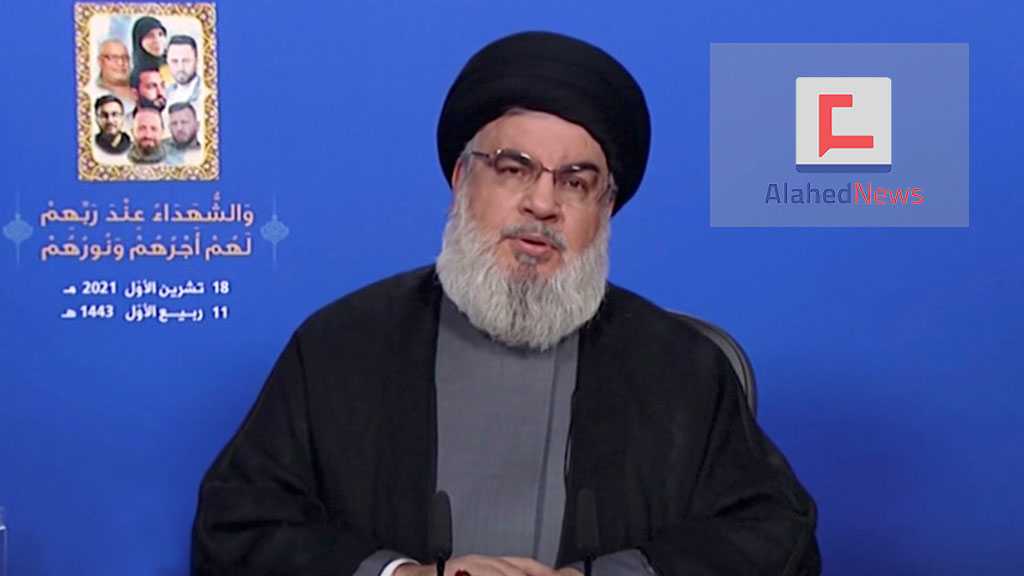
Sayyed Nasrallah: Psychological Warfare Aims at Fueling Lebanon’s Crises

By Staff
Hezbollah Secretary General His Eminence Sayyed Hassan Nasrallah said that crises in Lebanon is being deliberately exacerbated. He pointed to recent developments surrounding fuel supplies that turned into a fabricated crisis, which people corresponded with, making the situation worse.
During his speech at the central Ashura commemorations, His Eminence gave several instructions to the supporters of the resistance, stressing the importance of “honesty in reporting facts and not slandering or accusing anyone without evidence, and not to curse or insult anyone.”
“Differences in opinion do not mean attacking others. Criticizing is one thing, and attacking them is another. Whoever among the clergymen or male and female media professionals talk about politics, we have the right to respond to them, but within certain norms and not to attack them personally,” he said. “Insulting and belittling is a sign of weakness, while the strong discusses and puts forward ideas and does not need to insult others,” His Eminence explained.
Sayyed Nasrallah further stated that everyone should wait for the events to unfold, even officials, scholars and others in Hezbollah. “They should not issue directives regarding any event that might occur,” His Eminence added, and warned against underestimating the psychological and media warfare that is being waged.
“Our country is sensitive, and we are in a difficult battle and a long stage, and the environment of the resistance and its supporters must be aware and careful. We must be very responsible,” Sayyed Nasrallah added, noting that “Any person who expresses his opinion is respected, and it is not permissible to insult or defame them.”
In parallel, Sayyed Nasrallah urged “every brother and sister and every one of the supporters and the environment to know that they are responsible.”
“They should bear responsibility and discipline. We must not resort to sarcasm or belittling anyone. There is no problem in discussing politics. You disagree with them or criticize them, but people have no right to insult them or belittle them, even if they treated them in this way. We do not reciprocate.”
Comments
- Related News



